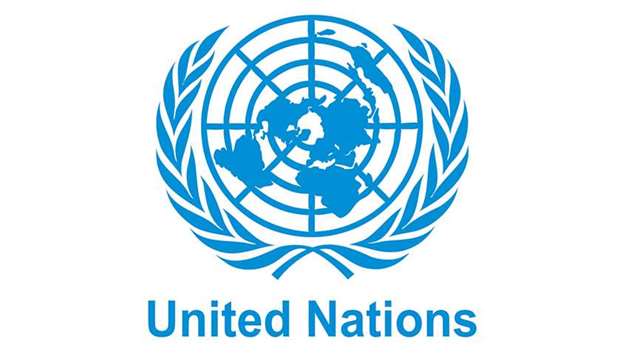The UN rights chief has said the “triple planetary crises” of climate change, pollution, and nature loss represented the biggest threat to human rights globally, at the opening yesterday of a month-long session set to prioritise environmental issues.
“The interlinked crises of pollution, climate change and biodiversity act as threat multipliers, amplifying conflicts, tensions and structural inequalities, and forcing people into increasingly vulnerable situations,” Michelle Bachelet told the opening of the 48th session of the UN Human Rights Council in Geneva.
“As these environmental threats intensify, they will constitute the single greatest challenge to human rights of our era,” she added.
The former Chilean president said the threats were already “directly and severely impacting a broad range of rights, including the rights to adequate food, water, education, housing, health, development, and even life itself”.
She said environmental damage usually hurt the poorest people and nations the most, as they often have the least capacity to respond.
Bachelet referred to recent “extreme and murderous” climate events such as floods in Germany and California’s wildfires.
She also said drought was potentially forcing millions of people into misery, hunger and displacement.
Bachelet said that addressing the environmental crisis was “a humanitarian imperative, a human rights imperative, a peace-building imperative and a development imperative. It is also doable”.
She said spending to revive economies in the wake of the coronavirus (Covid-19) pandemic could be focused on environmentally-friendly projects, but “this is a shift that unfortunately is not being consistently and robustly undertaken”.
She also said that countries had “consistently failed to fund and implement” commitments made under the Paris climate accords.
“We must set the bar higher – indeed, our common future depends on it,” she added.
Her remarks come at the opening session of the September 13 to October 8 session of the Human Rights Council, where climate change themes were expected to be central, alongside debates on alleged rights violations in Afghanistan, Myanmar, and Tigray, Ethiopia.
In the same speech, she voiced alarm at attacks on indigenous people in Brazil by illegal miners in the Amazon.
Geneva-based diplomats told Reuters that two new resolutions on the environment were expected, including one that would create a new Special Rapporteur on Climate Change and another that would create a new right to a safe, clean, healthy and sustainable environment.
Yesterday Germany’s Foreign Minister Heiko Maas voiced support for the first idea, which has not yet been formally submitted in draft form.
“Climate change affects virtually all human rights,” he said.
Marc Limon of the Universal Rights Group think-tank said the Council’s recognition of the right to a healthy environment would be “good news”.
“It would empower individuals to protect the environment and fight climate change,” he said.
During her address, Bachelet said that at the 12-day COP26 climate talks in Glasgow, set to begin on October 31, her office would push for more ambitious, rights-based commitments.
She added that in many regions, environmental human rights defenders were threatened, harassed and killed, often with complete impunity.
She said economic shifts triggered by the Covid-19 pandemic had apparently prompted increased exploitation of mineral resources, forests and land, with indigenous peoples particularly at risk.
“In Brazil, I am alarmed by recent attacks against members of the Yanomami and Munduruku peoples by illegal miners in the Amazon,” she said.
In her opening global update, Bachelet touched on the human rights situations in several countries, including Chad, the Central African Republic, Haiti, India, Mali and Tunisia.
On China, she said no progress had been made in her years-long efforts to seek “meaningful access” to Xinjiang.
“In the meantime, my office is finalising its assessment of the available information on allegations of serious human rights violations in that region, with a view to making it public,” she said.
Rights groups believe at least 1mn Uyghurs and other mostly Muslim minorities have been incarcerated in camps in the northwestern region, where China is also accused of forcibly sterilising women and imposing forced labour.
Beijing has strongly denied the allegations and says training programmes, work schemes and better education have helped stamp out extremism in the region.
Decisions made by the Council’s 47 members are not legally binding but carry political weight.
Environmental threats are the ‘greatest challenge to human rights’: UN

Related tags :


